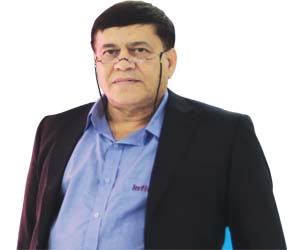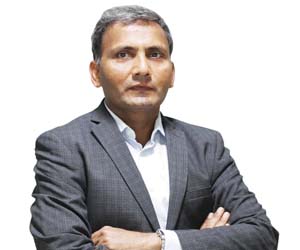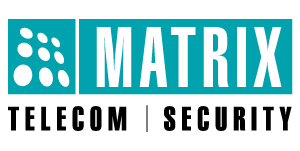Corona virus has brought the life and business to standstill all across the globe by spreading COVID 19 – a deadly viral pneumonic disease. The pandemic has taken more than a lakh of lives so far and there is no sign of hope of its subsiding soon. Total administrative lockdown has been ordered across the country which has been suggested as the only way out by medical practitioners after studying the nature of the disease. The disease is spread by personal contacts and social distancing is the one of the major ways out to break the chain of outbreak.
In the current challenging time, when the entire people and economies are struggling hard to survive their lives and businesses and manage the situation, India as of now is determined to fight back Covid 19, and is doing good so far. While all the front liners – healthcare workers, hygiene & sanitation staff, bankers, food & grocery merchants are doing at their best, private security industry especially security guards are playing a vital role towards the cause. They have been appreciated by all including the government.
It is not only the guarding sector but the security equipment one is also playing brilliant role in surveiling, monitoring, and controlling the situation. The Government of India has introduced an App called Arogya Setu which is to help in tracking the presence of Corona infected people.
However, this is also a fact that during this lockdown period, businesses including security agencies are shutting and/ or they are running at a depleted state. There is a lot of cost cutting happening in all commercial establishments – from Industries to corporates, from Malls to Restaurants, from IT/ ITeS MNCs to MSMEs, and so on. There are instances of layoff of security guards and non-payment to them during lockdown. Obviously security is the first one to bear the brunt of any austerity practice across all businesses.
SecurityLink India intends to understand the state of private security industry during the COVID 19 phase and threw a few questions to the industry. Here are the excerpts of some replies:
Milind Borkar Speaks

Milind Borkar
Vice President
(India & SAARC, Middle East and Africa)
![]()
SecurityLink India (SLI): What is your take on recent Coronavirus spread and the business of security – particularly in India?
Milind Borkar: The recent pandemic of COVID 19 has certainly impacted the business as a whole adversely but technology based businesses which can be monitored and controlled remotely are coming as a rescue in the time. Patients and contacts are being traced through mobile GPS. Apps are greatly helpful in tracking patients. The Government of India has created an App called Aarogya Setu which tells how an individual can check whether he is close to any person who is afflicted or is at a potential risk. Health security has currently become a big issue – whether contemporary technologies can track and/ or contain a biological attack or anticipate and/ or prevent one.
SLI: Kindly state the role of Indian private security industry towards Pandemic COVID 19 in terms of contribution, limitations, success and failures.
Milind Borkar: If there is anyone thing that the COVID 19 outbreak has shown to all of us it’s the true worth of people and organizations that keep our society safe and well as we go about our daily lives.
Medical professionals are rightly at the pinnacle of public attention at the moment, but the global pandemic has also highlighted the vital roles that so many people play in our world – from cleaners to delivery/ logistics teams, supermarket staff and the emergency services including security services – all of whom are doing their critical jobs, whilst also battling the potential of being infected and being ill themselves. This is the overseas example while in India people go about creating panic, as well as try to spread intentionally the virus as God is supposed to be on their side. In Kuwait specifically any expatriate who violates the law is simply put in lock and is deported – no questions asked.
A Government clarification states: Roles essential to supporting law and order, with the potential to reduce demand on policing, also meet the critical worker definition. This would include, amongst other areas, the guarding of empty or closed commercial, retail or office premises; the monitoring of similar through CCTV or other remote means; and the provisioning of alarm response centres including mobile units. But do we have this hardware in place, probably yes, but is it working?
Protecting people and property: Times of crisis undoubtedly bring out the best and the worst in people, which means for the majority a greater community spirit and desire to help and share with others. Sadly, there are always criminal elements who see nefarious opportunities to take advantage of – as we have observed through various news platforms of print as well as electronic media. These people should be arrested immediately, and a FIR be lodged irrespective of who so ever they may be.
Medical security: With a huge focus on the medical efforts of both the government and the private sector during this outbreak, it is easy to overlook the heightened security needs there too. Security in quarantine areas need to be strictly enforced, medical teams and supplies need to be protected. With the amount of panic buying going on recently, medical supplies (such as painkillers) are in demand, whilst many restricted medical drugs will always attract criminals (and addicts) if they are not properly secured. There are several cases where pharma stores have been vandalized.
SLI: The Corona regime appears to manifest the significance of human factors in the business of security, how do you advise?
Milind Borkar: On 11 March 2020, the World Health Organization (WHO) declared that an outbreak of the viral disease COVID 19 – first identified in December 2019 in Wuhan, China – had reached the level of a global pandemic. Citing concerns on the alarming levels of spread and severity, the WHO called for governments to take urgent and aggressive actions to stop the spread of the virus. I personally feel that WHO had a laid back attitude as there was a lot of disinformation coming out of the CCP in Beijing.
The scale and severity of the COVID 19 pandemic clearly rose to the level of a public health threat that could justify restrictions on certain rights such as those that resulted from the imposition of quarantine or isolation limiting freedom of movement. At the same time, careful attention to human rights such as non-discrimination, and human rights principles such as transparency and respect for human dignity can foster an effective response amidst the turmoil and disruption that inevitably result in times of crisis and limit the harms that can come from the imposition of overly broad measures that do not meet the above criteria. In India a lot of exploitations by claiming human rights are being done intentionally by certain sections of society to further their own agenda.
SLI: What are the impacts of lockdown on the industry – during and post Corona?
Milind Borkar: The 21-day inevitable lockdown to enforce self-distancing to prevent the spread of COVID 19 has brought the economy to bed rest. The exercise is to find out the cost of this lockdown. Except for certain essential services like electricity, gas, water supply, broadcasting, financial services (banking) and public administration, defence etc., all other sectors have been completely shut. Security services are now also included in the essential services that is to an extent a good news for the industry.
SLI: What are the major risks and challenges during the pandemic and how to manage them?
Milind Borkar: This particular event has made many US senators ask the question should they deal with China as previously, or get in some new legislations in place – as Donald Trump, the President of USA has been saying – the USA first. This is gaining ground there at the moment – let’s see what happens when things start coming back to normalcy slowly. This will finally force many companies and entire industries to rethink and transform their global supply chain model. One fact is beyond doubt – this incident has already exposed the vulnerabilities of many organizations, especially those who have higher dependence on China to fulfil their need for raw materials or finished products.
China’s dominant role as ‘world’s factory’ means that any major disruption like COVID 19 will put the global supply chains at risk. Highlighting this is the fact that more than 200 of the Fortune Global 500 firms have a presence in Wuhan, the highly industrialized province where the outbreak originated, and which has been hit the hardest. The official death figures coming out of there are ridiculous; the reality is far grimmer. It seems more than 100000 people have died there as per the whistle blower who has now disappeared and whose WeChat and Weibo accounts are no longer available!
Companies whose supply chain is reliant on Tier 1 (direct) or Tier 2 (secondary) suppliers in China are likely to experience significant disruption, even if, according to the most optimistic reports, conditions approach normalcy in China by April. Not sure of the accuracy of this report but as heard China has stopped all travel to and from Beijing till June. I got this information from a person who was working in Beijing but went to Hong Kong just before the lock down and now he cannot go back to his house as he is not a Chinese citizen. So something is happening and we are not aware of it.
SLI: How can organizations respond to the immediate change?
Milind Borkar: As recently also suggested and recommended by Deloitte, following steps may be advised for companies that operate or have business relationships in China and other impacted countries:
- Educate employees on COVID-19 symptoms and prevention.
- Reinforce screening protocols.
- Prepare for increased absenteeism.
- Restrict non-essential travel and promote flexible working arrangements.
- Align IT systems and support to evolving work requirements.
- Prepare succession plans for key executive positions.
- Focus on cash flow.
Following steps may be advised for companies that produce, distribute, or source from suppliers in China and other impacted countries:
- Enhance focus on workforce/ labor planning.
- Focus on Tier 1 supplier risk.
- Illuminate the extended supply network.
- Understand and activate alternate sources of supply.
- Update inventory policy and planning parameters.
- Enhance inbound materials visibility.
- Prepare for plant closures.
- Focus on production scheduling agility.
- Evaluate alternative outbound logistics options and secure capacity.
- Conduct global scenario planning.
SLI: What are the learnings and demands of industry for easy tackling of any like future emergencies?
Milind Borkar: One of the biggest lessons is agility and adaptability. In this uncertain world with ever changing dynamics, organizations and its employees must be agile and adaptive. Changes have to be embraced quickly. Disruptions must be viewed as opportunities and quick fix solutions need to be incorporated. The management must think out of the box and be flexible in its outreach. This may take time as their entire work schedule and philosophy will change, but with proper discussion and implementation of new work method and culture this can be achieved – patience is required. We have already started web based training with our partners for sales as well as technical discussions with the field staff as to the problems the SI faces when at the end user site. It is still early days but this may be the future.
Ganesh Jivani Speaks

Ganesh Jivani
Managing Director

SecurityLink India (SLI): What is your take on recent Coronavirus spread and the business of security – particularly in India?
Ganesh Jivani: Unlike other operations, security is 24x7x365. During pandemic like COVID 19, people cannot physically visit their workplaces. Naturally, persons responsible for organization’s security are more worried. Therefore, their dependence and expectations from their security investments increase multifold during such disruptions and lockdowns. We can safely assume that organizations would detect gaps in their current security systems and commit more investments in modern security infrastructure when businesses resume.
SLI: Kindly state the role of Indian private security industry towards Pandemic COVID 19 in terms of contribution, limitations, success and failures.
Ganesh Jivani: Security becomes even more critical when people are locked down and cannot physically visit their workplaces, physical infrastructure and assets. Security has two dimensions – manpower and equipment. Indian security professionals have always been the backbone of our economy in terms of guarding infrastructure and assets day and night. Coming to security equipment, organizations’ dependency on their security equipment has increased during the lockdown. Most new-generation security equipment offer remote administration, monitoring and real time alerts and notifications. Thus, organizations who have already invested in cutting-edge security technology are definitely better off than those who continued relying on traditional security equipment.
SLI: The Corona regime appears to manifest the significance of human factors in the business of security, how do you advise?
Ganesh Jivani: Let us all accept no one was prepared for this completely out of the blue scenario. Till yesterday, the world was running at its normal speed and suddenly it has come to a grinding halt. Who could have thought of or prepared for such an unprecedented scenario? We all are caught aware in the middle of our tracks.
At first, people did not know how to respond. There was a fair amount of disbelief and wishing away the reality. It took some time to understand that this is not a dream but a harsh reality. When the reality sunk in, people started thinking in multiple dimensions. During the initial few days, bewilderment and fear were two dominant emotions.
Now that people have started thinking with clear heads, we see constructive responses and countermeasures emerging. Overall, depending on senior people’s perspectives, we see following responses from organizations:
Competence: Most organizations are working on training programs and sharpening skills.
Planning: April being the first month of the new financial year, organizations are busy preparing annual budgets, annual sales plans etc.
Systems: It is the best time to retrieve those dusty system manuals and review and upgrade organizations system and processes.
Productive WFH: Depending on industry and readiness, organizations are waking up to the importance of Work from Home (WFH). More and more companies are pleasantly surprised to see many functions can operate with little or no impact on their productivity. These functions include Design, Engineering, IT, Systems, Marketing, Remote Sales, SCM, Customer Support etc.
Inefficiencies: Based on business outlook, organizations are busy reducing fixed overheads by eliminating excess manpower, cutting salaries, forcing leave without pay or even layoffs.
Recruitment: It might surprise us but many organizations are seeing opportunities even in such turbulent times and hiring talent during such uncertain times.
SLI: What are the impacts of lockdown on the industry – during and post Corona?
Ganesh Jivani: During Corona, the security industry is in a complete freeze. With manufacturing and logistics at complete standstill, we cannot expect meaningful business activities. One way to plan forward is to delete these lockdown weeks from the business calendar and assume somehow the year has shrunk.
It is difficult to predict when and in what kind of world we will wake up. Corona is expected to leave an impact on almost all aspects of our life – social, business, economical and political. Let us see when and how pickups the threads and at what momentum we resume. By any stretch of imagination, it looks improbable we can gather the previous momentum in a short time or expect to hit the ground running.
SLI: What are the learnings and demands of industry for easy tackling of any like future emergencies?
Ganesh Jivani: One wishes we don’t have to face a similar emergency. But at operational level, people will discover the capabilities and performance of their security equipment and probably they would demand more dependable equipment. We can also expect acceleration in technology adoption in the security industry. Demand for automation would also increase to reduce dependence on humans. Organizations would also include remote administration and control as part of their security strategy.